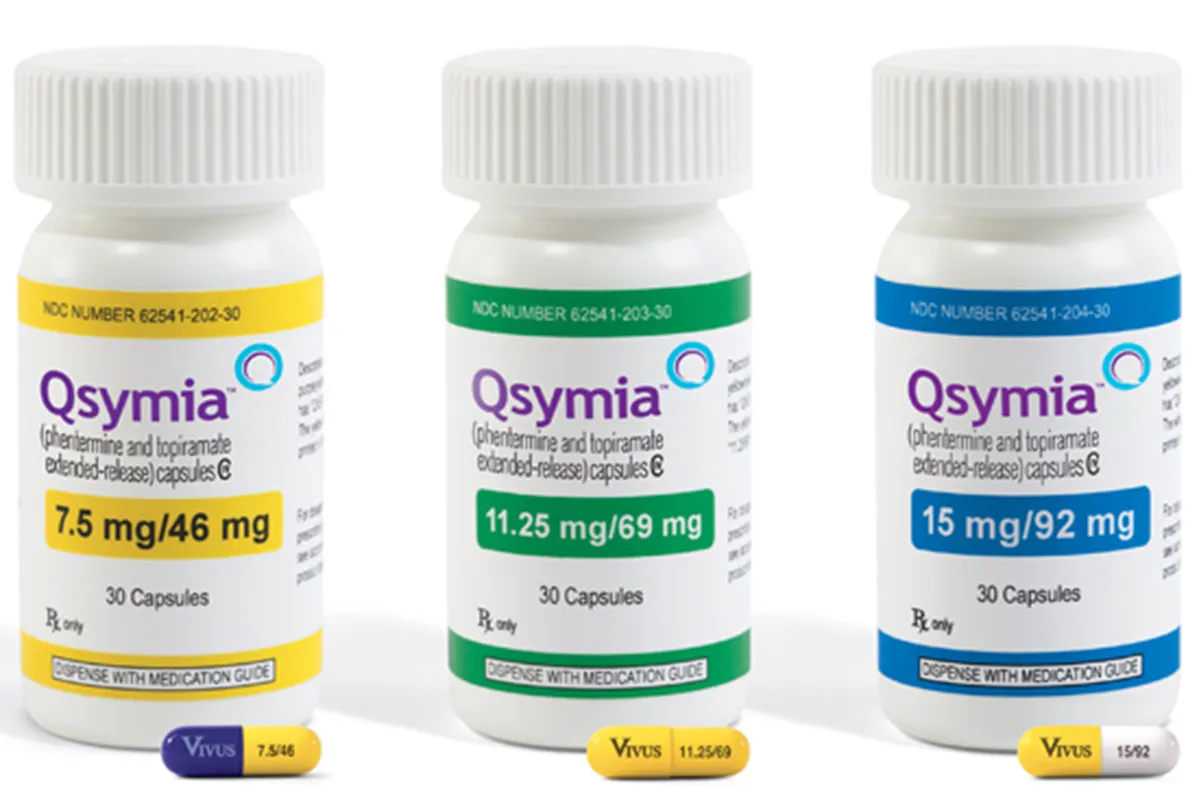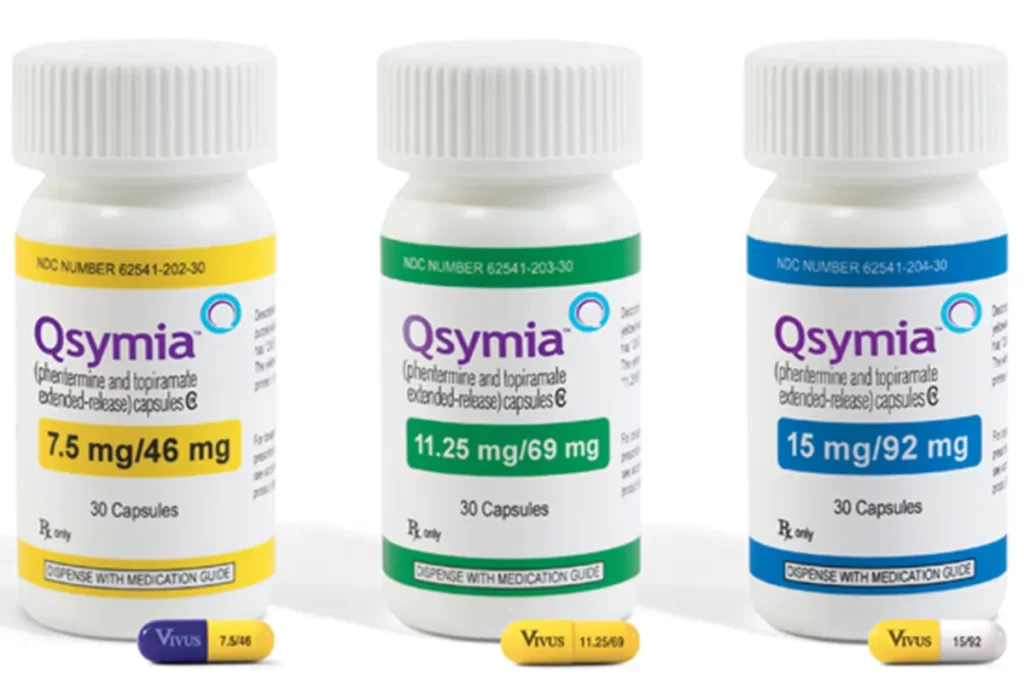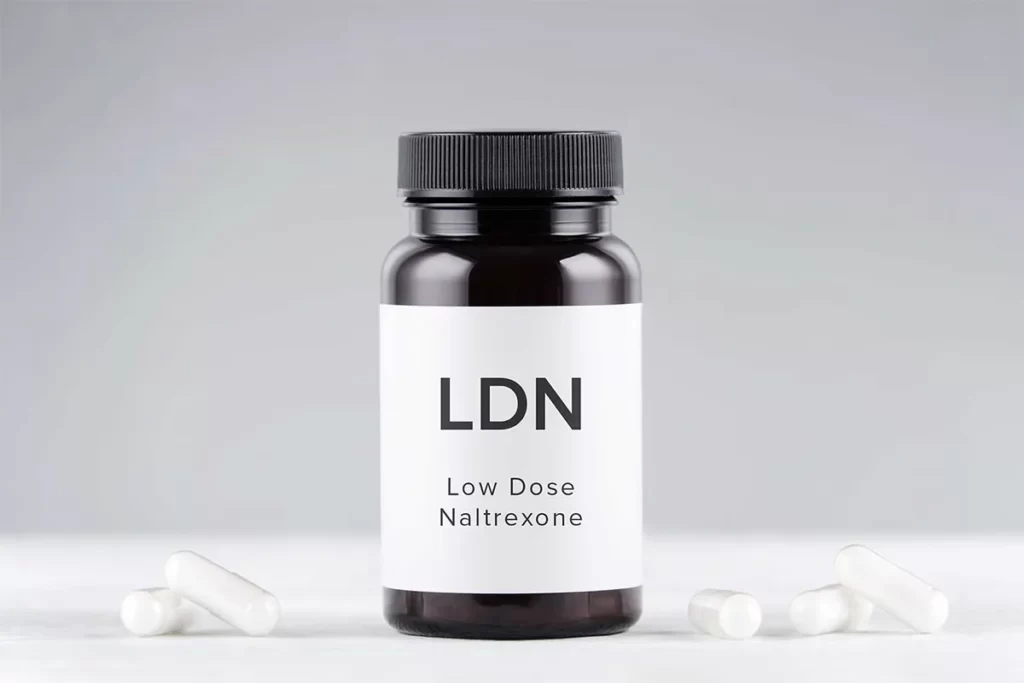Qsymia Weight Loss Medication: Purchase Tips
-
 Written by
Michael J. Ormsbee
Written by
Michael J. Ormsbee
- LAST UPDATED December 27, 2023
In recent years, the quest for effective weight loss solutions has become increasingly crucial due to rising obesity rates globally. Amidst various options, Qsymia weight loss medication emerges as a significant prescription-based solution. This medication, specifically designed for weight management, addresses the growing demand for reliable and medically supervised weight loss methods. Qsymia weight loss medication combines two pharmacological agents, offering a dual approach to tackling the challenges of obesity. Its approval and growing popularity underscore the urgent need for interventions that go beyond traditional diet and exercise, providing a medically grounded pathway to weight loss and health improvement.
What is Qsymia Weight Loss Medication?
Qsymia weight loss medication is a clinically approved treatment specifically designed for weight management. This medication is a unique combination of two well-established drugs: phentermine and topiramate. Each component plays a vital role in the medication’s effectiveness:
- Phentermine Component:
- Phentermine is a stimulant that primarily acts as an appetite suppressant.
- It targets the central nervous system, increasing heart rate and blood pressure, leading to a decrease in hunger.
- By reducing appetite, phentermine helps lower daily calorie intake, an essential factor in weight loss.
- Topiramate Component:
- Topiramate, originally used for seizures and migraine prevention, contributes to weight loss through several mechanisms.
- It enhances the feeling of fullness, thereby reducing overall food consumption.
- Topiramate may also alter taste perceptions, particularly for sweet and fatty foods, which can decrease cravings and caloric intake.
- Synergistic Effect for Weight Loss:
- The combination of phentermine and topiramate in Qsymia weight loss medication results in a synergistic effect that enhances weight loss more effectively than either component alone.
- This dual-action approach not only aids in rapid weight loss but also helps in maintaining the weight loss over a longer period.
- Long-term Weight Management:
- Qsymia is not just a short-term solution but is intended for long-term weight management.
- It is particularly beneficial for individuals who have not achieved significant weight loss through diet and exercise alone.
Qsymia weight loss medication offers a comprehensive approach to weight loss by combining appetite suppression and satiety enhancement, making it a valuable option for individuals seeking a medically supervised weight management solution.
FDA Approval and Eligibility for Qsymia Weight Loss Medication
Qsymia weight loss medication has received significant recognition and approval from the U.S. Food and Drug Administration (FDA) for its efficacy and safety in weight management. This approval extends to both adults and pediatric patients aged 12 years and older, marking a pivotal step in addressing obesity across different age groups.
- FDA Approval for Diverse Age Groups:
- Initially, Qsymia was approved by the FDA for use in adults struggling with obesity or overweight issues accompanied by weight-related health conditions.
- Recognizing its effectiveness, the FDA later expanded this approval to include pediatric patients aged 12 and older. This decision was based on clinical studies demonstrating Qsymia’s safety and efficacy in this younger demographic, highlighting its potential in early intervention of obesity.
- Eligibility Criteria Based on BMI and Health Conditions:
- For adults, eligibility for Qsymia weight loss medication is determined primarily by Body Mass Index (BMI) metrics. It is prescribed for adults with a BMI of 30 kg/m² or greater (classified as obese) or 27 kg/m² or greater (classified as overweight) when accompanied by at least one weight-related condition such as hypertension, type 2 diabetes, or dyslipidemia.
- In pediatric patients, the criteria focus on those with a BMI in the 95th percentile or greater for their age and sex, indicating a significant deviation from the healthy weight range for their developmental stage.
- These criteria ensure that Qsymia is used by individuals who are most likely to benefit from its weight management properties, particularly those for whom traditional methods like diet and exercise have not been sufficient.
The FDA approval of Qsymia weight loss medication for both adults and pediatric patients underscores its role as a valuable tool in the fight against obesity. By setting clear eligibility criteria based on BMI and associated health conditions, Qsymia is positioned as a targeted solution for those in need of medical intervention to manage their weight effectively.

FDA Approval and Eligibility for Qsymia Weight Loss Medication
Qsymia weight loss medication has received significant recognition and approval from the U.S. Food and Drug Administration (FDA) for its efficacy and safety in weight management. This approval extends to both adults and pediatric patients aged 12 years and older, marking a pivotal step in addressing obesity across different age groups.
- FDA Approval for Diverse Age Groups:
- Initially, Qsymia was approved by the FDA for use in adults struggling with obesity or overweight issues accompanied by weight-related health conditions.
- Recognizing its effectiveness, the FDA later expanded this approval to include pediatric patients aged 12 and older. This decision was based on clinical studies demonstrating Qsymia’s safety and efficacy in this younger demographic, highlighting its potential in early intervention of obesity.
- Eligibility Criteria Based on BMI and Health Conditions:
- For adults, eligibility for Qsymia weight loss medication is determined primarily by Body Mass Index (BMI) metrics. It is prescribed for adults with a BMI of 30 kg/m² or greater (classified as obese) or 27 kg/m² or greater (classified as overweight) when accompanied by at least one weight-related condition such as hypertension, type 2 diabetes, or dyslipidemia.
- In pediatric patients, the criteria focus on those with a BMI in the 95th percentile or greater for their age and sex, indicating a significant deviation from the healthy weight range for their developmental stage.
- These criteria ensure that Qsymia is used by individuals who are most likely to benefit from its weight management properties, particularly those for whom traditional methods like diet and exercise have not been sufficient.
The FDA approval of Qsymia weight loss medication for both adults and pediatric patients underscores its role as a valuable tool in the fight against obesity. By setting clear eligibility criteria based on BMI and associated health conditions, Qsymia is positioned as a targeted solution for those in need of medical intervention to manage their weight effectively.
How to Get a Qsymia Prescription for Weight Loss Medication
Obtaining a prescription for Qsymia weight loss medication involves a few essential steps, ensuring that this medication is used safely and effectively under medical supervision.
- Initial Consultation:
- The first step in acquiring a Qsymia prescription is to consult with a healthcare provider. This can be done through traditional in-person visits or via online doctors who are licensed to prescribe medication.
- Online consultations have become increasingly popular, offering convenience and accessibility, especially for those with busy schedules or limited access to healthcare facilities.
- Comprehensive Medical Evaluation:
- During the consultation, whether in-person or online, the doctor will conduct a thorough medical evaluation. This includes assessing your medical history, current health status, and any existing medical conditions.
- The evaluation is crucial to determine if Qsymia weight loss medication is suitable for you. It helps in identifying any potential risks or contraindications based on your health profile.
- Discussing Weight Loss Goals and Expectations:
- Your healthcare provider will discuss your weight loss goals and expectations. This conversation is vital to set realistic targets and understand how Qsymia can aid in achieving these goals.
- The doctor will also provide guidance on lifestyle changes, such as diet and exercise, which are essential components of a successful weight loss plan alongside Qsymia.
- Prescription and Follow-Up:
- If deemed appropriate for your case, the doctor will then prescribe Qsymia. They will also explain the correct dosage and how to take the medication.
- Regular follow-up appointments are important to monitor your progress, manage any side effects, and make any necessary adjustments to your treatment plan.
Getting a prescription for Qsymia weight loss medication requires a careful and considered approach, starting with a professional medical consultation and evaluation. This process ensures that Qsymia is used as a safe and effective tool in your weight loss journey, tailored to your individual health needs and goals.
Qsymia Pricing for Weight Loss Medication
Understanding the pricing of Qsymia weight loss medication is crucial for those considering it as a part of their weight management plan. The cost of Qsymia can vary based on several factors:
- Price Range and Influencing Factors:
- The price of Qsymia weight loss medication can differ significantly depending on the dosage and the quantity prescribed. Typically, higher dosages and larger quantities might lead to a higher cost.
- Geographic location and the pharmacy you choose can also influence the price. Prices may vary between different regions and retail outlets.
- Additionally, the cost may be affected by whether you are paying out of pocket or if the medication is partially covered by health insurance.
- Insurance Coverage:
- Insurance coverage for Qsymia weight loss medication varies by provider and plan. Some insurance plans may cover a portion of the cost, while others may not provide any coverage.
- It’s important to check with your insurance provider to understand the extent of coverage for Qsymia. This will help you estimate the out-of-pocket expenses you may incur.
- Qsymia Savings Card Program:
- To assist with the cost, the Qsymia Savings Card program offers significant discounts and savings on prescriptions.
- This program is particularly beneficial for patients without insurance coverage or those with limited coverage. It can substantially reduce the cost burden, making the medication more accessible.
- Eligibility criteria and terms for the Qsymia Savings Card program can be found on the official Qsymia website or through participating pharmacies.
While the pricing of Qsymia weight loss medication can vary, understanding these key factors, along with exploring insurance options and discount programs like the Qsymia Savings Card, can help in managing the costs associated with this effective weight loss treatment.
User Experiences and Reviews of Qsymia Weight Loss Medication
The effectiveness and impact of Qsymia weight loss medication are best understood through the experiences and reviews of its users. These real-life stories provide valuable insights into the medication’s efficacy and its role in individuals’ weight loss journeys.
- Summary of User Reviews:
- Overall, many users of Qsymia weight loss medication report positive outcomes, particularly highlighting significant weight loss achievements that were not possible with diet and exercise alone.
- Commonly, users mention the reduction in appetite and cravings as a key benefit, which helped them adhere to a healthier eating regimen.
- Some reviews, however, do mention experiencing side effects, which vary in intensity and nature. These range from mild symptoms like dry mouth and tingling sensations to more serious ones in rare cases.
- Real-Life Success Stories:
- Among the success stories, individuals often share transformative experiences, detailing substantial weight loss over months of consistent use. These stories frequently include improvements in overall health parameters, like reduced blood pressure and better blood sugar control.
- Many users express increased confidence and improved quality of life as a result of their weight loss, attributing these changes to Qsymia weight loss medication.
- It’s also common for users to discuss the importance of combining Qsymia with lifestyle changes, emphasizing that the medication is a tool that works best in conjunction with a healthy diet and regular physical activity.
These user experiences and reviews of Qsymia weight loss medication underscore its potential as a valuable aid in weight management. While individual results vary, the collective feedback provides a hopeful perspective for those struggling with obesity or weight-related health issues.
Comparing Qsymia Weight Loss Medication with Other Weight Loss Pills
When considering Qsymia weight loss medication, it’s important to compare it with other available prescription weight loss pills to understand its relative strengths and limitations.
- Analysis of Qsymia Versus Other Prescription Weight Loss Pills:
- Qsymia stands out for its unique combination of phentermine and topiramate, which work together to suppress appetite and enhance satiety. This dual-action approach is distinct from other weight loss medications that may focus on a single aspect of weight loss.
- Compared to other strong prescription weight loss pills like Orlistat, Liraglutide, and Bupropion/Naltrexone, Qsymia often shows a higher average weight loss in clinical trials. For instance, Orlistat works by reducing fat absorption, while Liraglutide mimics a hormone that regulates appetite.
- Qsymia’s effectiveness in reducing weight and maintaining weight loss over a longer period is well-documented, making it a preferred choice for many healthcare providers and patients.
- Pros and Cons of Qsymia Compared to Alternatives:
Pros:
- Qsymia has shown higher efficacy in long-term weight loss compared to many other weight loss medications.
- It is beneficial for patients who struggle with both appetite control and cravings, addressing multiple facets of weight management.
- Qsymia can also have additional health benefits, such as improving blood sugar levels, blood pressure, and cholesterol levels.
Cons:
- Qsymia is not suitable for everyone, especially pregnant women, due to the risk of birth defects.
- Some users may experience side effects, which can range from mild to severe.
- The cost of Qsymia can be higher than some other weight loss medications, and insurance coverage varies.
While Qsymia weight loss medication offers a potent solution for weight loss, it’s crucial to weigh its advantages and disadvantages against other available options. This comparison helps in making an informed decision that aligns with individual health needs and circumstances.
Side Effects and Long-Term Considerations of Qsymia Weight Loss Medication
While Qsymia weight loss medication is an effective solution for obesity and weight management, it’s crucial to understand its potential side effects and long-term safety considerations.
- Common and Serious Side Effects of Qsymia:
- Common Side Effects: Users of Qsymia may experience side effects such as tingling in the hands and feet, dizziness, altered taste sensation, insomnia, constipation, and dry mouth. These are generally mild and often resolve as the body adjusts to the medication.
- Serious Side Effects: More severe side effects, though less common, include an increase in heart rate, suicidal thoughts or actions, and vision problems like acute myopia and secondary angle closure glaucoma. Qsymia can also cause metabolic acidosis, a change in the acidity of the blood.
- Pregnancy-Related Risks: One of the most significant concerns with Qsymia is the risk of birth defects, particularly oral clefts in infants, if taken during pregnancy. Therefore, it is not recommended for use by pregnant women.
- Long-Term Side Effects and Safety Considerations:
- Long-Term Usage: The long-term use of Qsymia requires careful monitoring by healthcare professionals. While it has been shown to be effective for extended use, the long-term impact on the body is still a subject of ongoing research.
- Potential for Dependence: Given that Qsymia contains phentermine, a stimulant, there is a potential for dependence or abuse. It’s classified as a Schedule IV controlled substance for this reason.
- Regular Monitoring: Patients using Qsymia over the long term should have regular check-ups to monitor for any cardiovascular issues, changes in mood or behavior, and other potential side effects.
- Discontinuation of Qsymia: Stopping Qsymia suddenly can lead to withdrawal symptoms. It’s important to taper off the medication under medical supervision rather than abruptly discontinuing it.
While Qsymia weight loss medication offers significant benefits for weight loss and obesity management, it’s essential to be aware of and manage its side effects. Regular medical supervision and adherence to prescribed guidelines are key to safely benefiting from Qsymia’s weight loss properties.
Qsymia’s Effectiveness in Weight Loss Medication
The effectiveness of Qsymia weight loss medication is well-documented through clinical trials and user experiences, making it a credible option for those seeking weight management solutions.
- Clinical Trial Results:
- Clinical trials of Qsymia have shown significant results in weight loss. In these studies, participants were given varying doses of Qsymia or a placebo, alongside recommendations for a calorie-restricted diet and increased physical activity.
- The trials demonstrated that individuals taking Qsymia experienced considerably more weight loss compared to those on the placebo. This was evident in both the short-term (up to 28 weeks) and long-term (up to 56 weeks) studies.
- Notably, the effectiveness of Qsymia was observed in various demographics, including adults with different levels of obesity and related health conditions like type 2 diabetes.
- Average Weight Loss Percentages and User Expectations:
- On average, users of Qsymia can expect to lose a significant percentage of their body weight. Studies have shown that patients taking the higher dose of Qsymia lost an average of approximately 10% of their body weight over a year, which is a substantial reduction for individuals struggling with obesity.
- It’s important for users to have realistic expectations. While Qsymia can aid in significant weight loss, it works best when combined with lifestyle changes, including a healthy diet and regular exercise.
- The weight loss journey with Qsymia varies from person to person, and factors like adherence to the medication regimen, lifestyle modifications, and individual metabolic differences play a crucial role in determining the extent of weight loss.
Qsymia weight loss medication has proven to be an effective tool in the fight against obesity, as evidenced by clinical trials and the experiences of many users. Its ability to facilitate significant weight loss makes it a valuable option for those seeking medical assistance in managing their weight.
Lifestyle Changes and Qsymia Weight Loss Medication
Integrating Qsymia weight loss medication into a broader lifestyle change strategy is essential for maximizing its effectiveness in weight management.
- Combining Qsymia with Diet and Exercise:
- Qsymia weight loss medication is most effective when used in conjunction with a reduced-calorie diet and increased physical activity. This combination approach addresses both the pharmacological and behavioral aspects of weight loss.
- A reduced-calorie diet helps create the necessary energy deficit for weight loss, while Qsymia aids in appetite control, making it easier to adhere to dietary restrictions.
- Increased physical activity not only contributes to caloric burn but also improves overall health, enhancing the weight loss process. Regular exercise can improve cardiovascular health, increase muscle mass, and boost metabolism, all of which are beneficial when taking Qsymia.
- Tips for Maximizing Weight Loss with Qsymia:
- Set Realistic Goals: Establish achievable weight loss targets to stay motivated. Remember, gradual weight loss is more sustainable in the long run.
- Monitor Your Diet: Keep track of your calorie intake. Opt for nutrient-dense foods that are low in calories but high in vitamins, minerals, and fiber.
- Stay Active: Incorporate a mix of cardiovascular exercises, strength training, and flexibility workouts into your routine. Aim for at least 150 minutes of moderate aerobic activity or 75 minutes of vigorous activity per week, as recommended by health guidelines.
- Stay Hydrated: Drinking plenty of water can aid in appetite control and overall metabolism.
- Get Adequate Sleep: Ensure you get enough sleep as poor sleep can affect your appetite and weight.
- Regular Check-ups: Have regular follow-ups with your healthcare provider to monitor your progress on Qsymia and make any necessary adjustments to your treatment plan.
While Qsymia weight loss medication is a powerful tool in weight management, its full potential is best realized when combined with lifestyle changes such as a balanced diet and regular physical activity. These complementary strategies not only enhance the effectiveness of Qsymia but also promote overall health and well-being.
Availability and Accessibility of Qsymia Weight Loss Medication
Accessing and purchasing Qsymia weight loss medication involves a straightforward process, though it’s important to follow the correct channels to ensure safety and authenticity.
- Purchasing Qsymia:
- Qsymia is not available over-the-counter and requires a prescription from a licensed healthcare provider. This is due to its classification as a controlled substance and the need for medical supervision during its use.
- It’s important to note that Qsymia is not typically available on general online marketplaces like Amazon due to regulations surrounding prescription medications. It should be obtained through legitimate pharmaceutical channels.
- Obtaining Qsymia Through Online Doctors and Pharmacies:
- Consultation with Online Doctors: Many telehealth services and online medical platforms offer consultations with licensed doctors who can prescribe Qsymia. These services provide a convenient way to access medical advice and prescriptions, especially for those with busy schedules or limited access to traditional healthcare facilities.
- Using Online Pharmacies: Once you have a prescription, you can use online pharmacies to order Qsymia. These pharmacies often offer the convenience of home delivery. It’s crucial to use reputable online pharmacies to ensure that you receive genuine Qsymia medication.
- Verification and Safety: When using online services, verify the credentials of the healthcare providers and the accreditation of the pharmacies. This is essential to ensure that you receive safe and effective medication.
- Insurance and Payment: Check with the online pharmacy if they accept insurance or if you need to pay out-of-pocket. Some online pharmacies may also offer assistance programs or discounts.
While Qsymia weight loss medication is not available on platforms like Amazon, it can be conveniently obtained through online doctors and accredited pharmacies with a valid prescription. This process ensures that patients receive legitimate and safe medication, along with appropriate medical guidance for their weight loss journey.
Qsymia weight loss medication has emerged as a significant player in the field of medical weight management. Its effectiveness, as evidenced by clinical trials and user experiences, positions it as a potent option for individuals struggling with obesity or weight-related health issues. The unique combination of phentermine and topiramate in Qsymia addresses both appetite suppression and satiety enhancement, offering a comprehensive approach to weight loss.
However, it’s crucial to acknowledge that Qsymia is not a one-size-fits-all solution. Its suitability varies based on individual health profiles, existing medical conditions, and specific weight loss goals. The medication’s potential side effects and the necessity for medical supervision underscore the importance of a personalized approach to weight loss.
Therefore, for those considering Qsymia weight loss medication, the key step is consulting with healthcare providers. Professional medical advice is essential to determine if Qsymia is the right choice for your weight management journey. Healthcare providers can offer tailored guidance, taking into account your health history, current conditions, and overall weight loss objectives.
Qsymia weight loss medication stands as a valuable tool in the fight against obesity, offering hope and results for many. Yet, its use should be carefully considered and professionally supervised to ensure safety, effectiveness, and alignment with individual health needs.

FAQs on Qsymia Weight Loss Medication
How much weight can you lose using Qsymia?
The amount of weight loss with Qsymia can vary based on individual factors like diet, exercise, and adherence to the medication regimen. Clinical trials have shown that on average, patients taking Qsymia can expect to lose between 5% to 10% of their body weight. Specifically, those on the higher dose of Qsymia (15 mg/92 mg) lost about 10% of their body weight over a year. It's important to note that Qsymia is most effective when combined with a healthy diet and regular exercise. Weight loss results also depend on the starting weight and metabolic rate of the individual, as well as their overall commitment to a healthier lifestyle while on the medication.
How much does Qsymia cost per month?
The cost of Qsymia can vary depending on the dosage and the pharmacy from which it is purchased. On average, the monthly cost of Qsymia can range from approximately $200 to $300 without insurance. However, this cost can be significantly reduced for eligible patients through the Qsymia Savings Card program, which offers discounts. It's also worth checking with your insurance provider, as some plans may cover a portion of the medication's cost. The price may also vary based on geographic location and any additional pharmacy dispensing fees.
Is Qsymia a good diet pill?
Qsymia has been recognized as an effective medication for weight loss, especially for individuals who have struggled with losing weight through diet and exercise alone. It combines two medications, phentermine and topiramate, which work together to suppress appetite and enhance satiety. This dual mechanism can be particularly beneficial in managing dietary habits and reducing calorie intake. However, it's important to understand that Qsymia is not a magic pill. It works best when used as part of a comprehensive weight loss plan, including a healthy diet, regular physical activity, and lifestyle changes. Additionally, like all medications, Qsymia may have side effects and is not suitable for everyone, such as pregnant women or individuals with certain medical conditions.
Is Qsymia FDA approved for weight loss?
Yes, Qsymia is FDA approved for weight loss. It was initially approved by the U.S. Food and Drug Administration (FDA) in 2012 for use in adults with a body mass index (BMI) of 30 kg/m² or greater (obese) or 27 kg/m² or greater (overweight) in the presence of at least one weight-related condition such as hypertension, type 2 diabetes, or dyslipidemia. The approval was based on the results of clinical trials that demonstrated its efficacy in helping patients lose weight and maintain weight loss. The FDA's approval of Qsymia as a weight loss medication underscores its safety and effectiveness when used under medical supervision. However, it's important to consult with a healthcare provider to determine if Qsymia is the right choice for your weight management needs.






